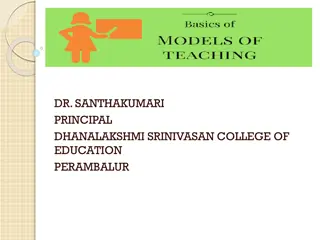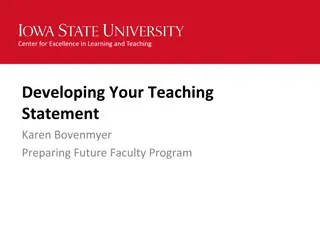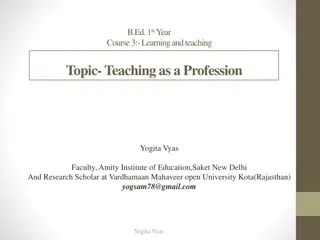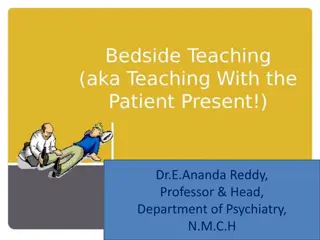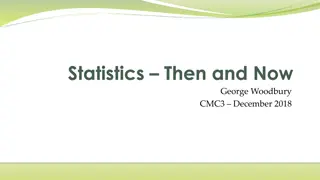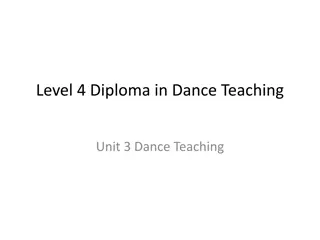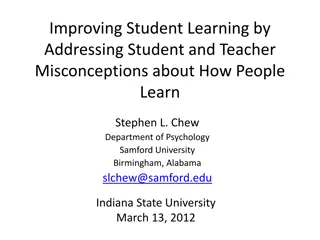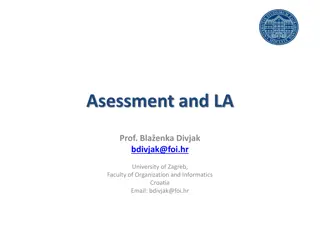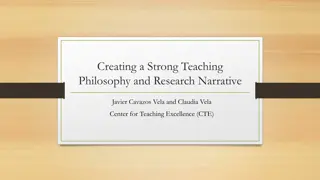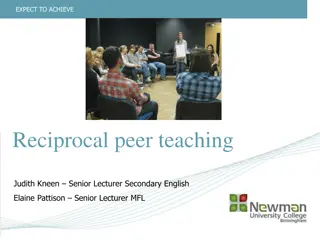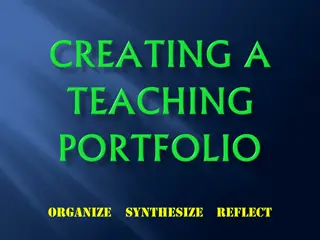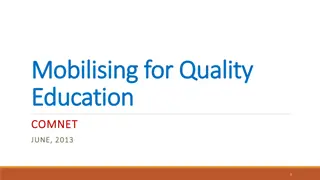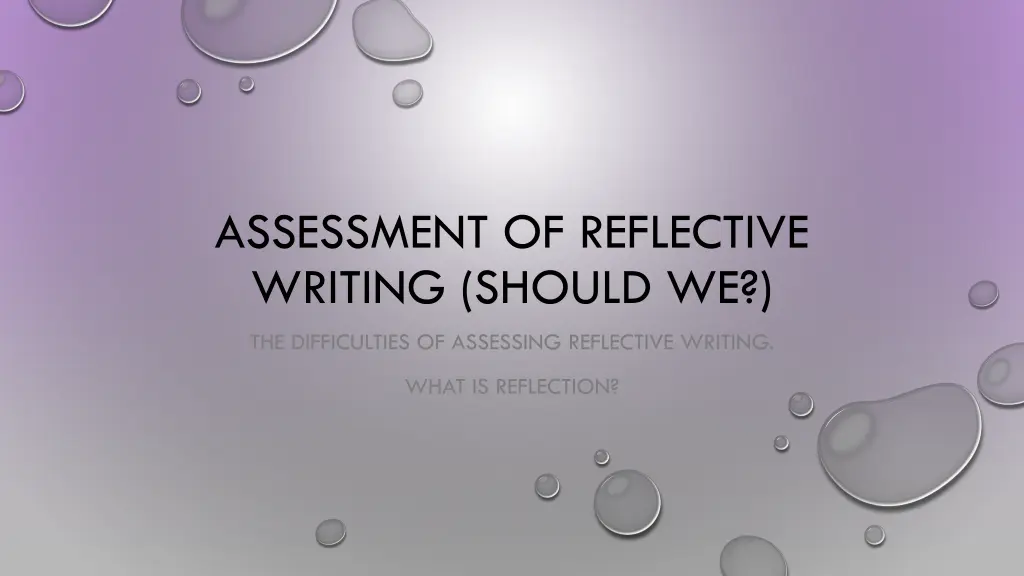
Assessing Reflective Writing Challenges and Reflection Concepts
Explore the difficulties of assessing reflective writing, understand the concept of reflection, reflexivity, and the importance of being aware of personal influences. Consider the ethical aspects of educators assessing personal writing and reflect on the purpose and benefits of student reflection.
Download Presentation

Please find below an Image/Link to download the presentation.
The content on the website is provided AS IS for your information and personal use only. It may not be sold, licensed, or shared on other websites without obtaining consent from the author. If you encounter any issues during the download, it is possible that the publisher has removed the file from their server.
You are allowed to download the files provided on this website for personal or commercial use, subject to the condition that they are used lawfully. All files are the property of their respective owners.
The content on the website is provided AS IS for your information and personal use only. It may not be sold, licensed, or shared on other websites without obtaining consent from the author.
E N D
Presentation Transcript
ASSESSMENT OF REFLECTIVE WRITING (SHOULD WE?) THE DIFFICULTIES OF ASSESSING REFLECTIVE WRITING. WHAT IS REFLECTION?
REFLEXIVITY THINKING ABOUT THE WAY WE THINK AND THE INFLUENCES ON OUR THINKING
REFLEXIVITY BEING AWARE OF THE RELATIONSHIP BETWEEN THE INDIVIDUAL (STUDENT OR RESEARCHER) RELATIONSHIP WITH THE SOCIAL WORLD (BEING REFLEXIVE) ACKNOWLEDGING WHO YOU ARE (MOON, 2010)
BEING REFLEXIVE MEANS YOU CONSIDER YOUR VIEWS OR VALUES OF A PREVIOUS EXPERIENCE, THE IMPORTANCE OF ADDITIONAL FACTORS SUCH AS PERCEPTION, PERSONAL HABITS, SOCIAL PRESSURE (MEZIROW, 1983, 2000), YOUR EMOTIONAL STATE (MOON, 2010), HOW YOU ASSIGN MEANING (MOON, 2008), OR MAKES SENSE (BOUD ET AL., 1985), AND CONSIDER WHETHER YOU HAVE EXPERIENCED A CHANGE IN BEHAVIOUR? (OSTERMAN AND KOTTKAMP, 1993).
DO WE AS EDUCATORS HAVE THE RIGHT TO ASSESS SUCH PERSONAL WRITING? WHEN ONE CONSIDERS THE EMOTIONAL EXPERIENCE OF REFLECTIVE WRITING
WHAT CAN WE TAKE FORWARD? UNDERSTANDING WHAT INFLUENCES REFLECTIVE WRITING: (IF WE DO ) WHY DO WE ASK STUDENTS TO REFLECT? WHAT IS THE PURPOSE OF THE REFLECTION? WHO WILL BENEFIT? BE CONSCIOUS OF THE NEGATIVE EFFECTS AS WELL AS THE POSITIVE!
REFERENCES BOUD, D., KEOGH, R. AND WALKER, D. (1985). REFLECTION: TURNING EXPERIENCE INTO LEARNING. LONDON: KOGAN PAGE. MEZIROW, J. (1983). CRITICAL THEORY OF ADULT LEARNING AND EDUCATION . IN TIGHT, M. (ED.), EDUCATION FOR ADULTS, VOL. 1. LONDON: CROOM HELM. MEZIROW, J. (ED.) (2000). LEARNING AS TRANSFORMATION: CRITICAL PERSPECTIVES ON A THEORY IN PROGRESS. SAN FRANCISCO: JOSSEY-BASS. MOON, J. (2008). CRITICAL THINKING. AN EXPLORATION OF THEORY AND PRACTICE. ABINGDON, NEW YORK: ROUTLEDGE. MOON, J. (2010). REFLECTION IN LEARNING & PROFESSIONAL DEVELOPMENT. LONDON, NEW YORK: ROUTLEDGE/FALMER. OSTERMAN, K.F. AND KOTTKAMP, R.B. (1993). REFLECTIVE PRACTICE FOR EDUCATORS IMPROVING SCHOOLING THROUGH PROFESSIONAL DEVELOPMENT. LONDON, CORWIN PRESS INC.



